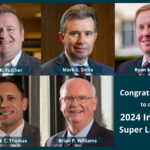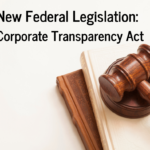On April 18, 2017, President Trump signed an executive action entitled “Buy American and Hire American.” While the order does not have any immediate impact on employment visa programs, it reflects the administration’s strong stance on increasing enforcement of immigration laws which may impact employers that sponsor or hire foreign employees.
In light of this and the prior executive actions, and the administration’s current stance on immigration in general, employers that hire foreign workers should expect and prepare for an increase in worksite inspections and government audits. A major part of this preparation includes ensuring that employers are compliant with immigration and labor laws regarding their foreign workforce.
Specifically, the H-1B visa program has received increasing attention from this administration, and the new executive action calls for agency heads to review the H-1B visa program and propose reforms. Any proposals would need to go through a lengthy review and rule-making process before taking effect. In the meantime, it is more important than ever that employers understand the responsibilities they undertake when sponsoring and employing H-1B workers.
These obligations that all employers that hire or sponsor H-1B workers undertake include the following:
- Maintaining a Public Access File for each H-1B employee as soon as the Labor Condition Application (LCA) is filed.
- Paying H-1B employees at least the local prevailing wage for the position, or the employer’s actual wage, whichever is higher.
- Paying H-1B employees for all nonproductive time caused by conditions related to employment, such as lack of work, lack of a permit, or studying for a licensing exam.
- Ensuring H-1B employees are employed under the same conditions and terms of employment as the employer’s American workers, i.e. that H-1B employees receive the same employment benefits as the employer’s U.S. workers.
- Ensuring that H-1B employees are employed under the same conditions as attested to in the certified LCA, and the information provided in the certified LCA is accurate and true.
- Notifying USCIS of any material changes in the H-1B worker’s employment by filing an amended I-129.
- Notifying USCIS when an H-1B employee is terminated.
- Paying for the H-1B worker’s transportation costs to return home if employer terminates or otherwise dismisses the worker prior to the expiration of the worker’s H-1B status.
Employers that are H-1B dependent – meaning they meet a particular threshold in terms of the percentage of their workforce that is comprised of H-1B workers – have additional obligations regarding ensuring that U.S. workers are not being displaced by the hiring of H-1B employees.
Audits may be performed by the Department of Labor or U.S. Citizenship and Immigration Services, and penalties for violations include back wages, civil fines from $1,000 to $35,000 per violation, and restricting access to additional H-1B workers. As audits and worksite inspections for H-1B employers are expected to increase under this administration, ensuring compliance with immigration and labor laws is the first step to avoiding these penalties.
For additional information regarding this or any related area of law, please call (812) 423-3183.




